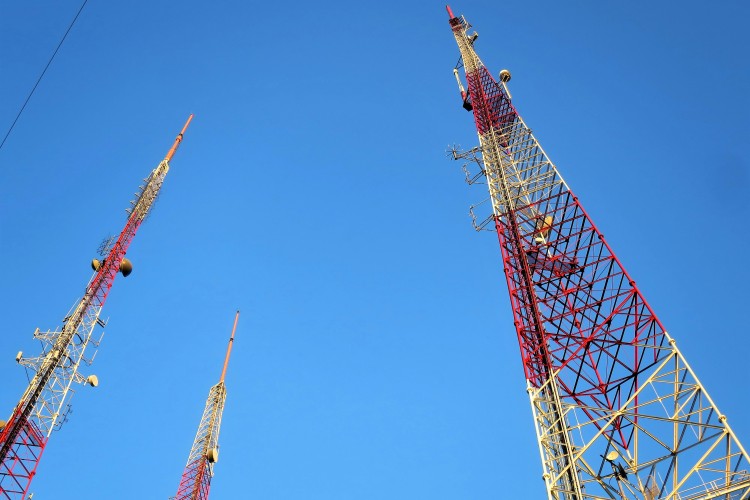
The latest round of 5G spectrum auction went in line with speculations with Bharti Airtel claiming the lion’s share of spectrum. The auction was primarily for powering 5G services and ended on the second day of bidding as buyer interest remained subdued. This was the shortest round of auctions ever held and the government managed to snap up Rs 11,340.8 crore. Of the entire lot of spectrum on sale, the muted bidding for airwaves resulted in selling of only 1.34% of airwaves. Bharti Airtel won bids worth Rs 6,856 crore and the Sunil Mittal-led telco purchased 97 MHz of spectrum.
Airtel was anticipated by many analysts to be the biggest spender at the 2024 auctions, but it surprised them all by shelling out significantly more than the predicted Rs 3,800 crore by multiple brokerage houses. On the other hand, market leader Reliance Jio purchased the lowest amount of spectrum (14.4 MHz) at Rs 973 crore. Vodafone Idea (Vi) picked up the second-largest amount of spectrum (30 MHz) at Rs 3,510.4 crore. A large chunk of the purchases by both Bharti Airtel and Vodafone Idea will be deployed towards renewal of spectrum in certain bands.
READ | Drought and debt: Water crisis threatens India’s economic growth
5G spectrum auction
In a start contrast to the previous round of spectrum auction ahead of the launch of 5G services in 2022, telcos had bid aggressively. They had bought airwaves worth a record Rs 1.5 trillion at that point.
In a story published earlier this month, Policy Circle had highlighted several reasons behind the lukewarm response for this year’s auction. Telecom giants like Jio and Bharti Airtel, having already invested heavily in 5G spectrum during the 2022 auction, are still ramping up network utilisation. This, coupled with the lack of the crucial 700 MHz band in the recently concluded auctions, put a damper on bidding activity.
The government had projected non-tax revenue from the telecom sector to reach Rs 1.2 trillion in FY25 (a 28.5% increase from FY24’s revised estimate) in the 2024 Interim Budget. However, it’s unclear how much of the latest spectrum auction proceeds will directly impact this target since telecom companies will pay for the spectrum over the next 20 years.
State of telecom industry
India’s broadband landscape has witnessed phenomenal growth, with subscriptions skyrocketing from 149.75 million in FY16 to a staggering 904.54 million by FY23 (April-December). This surge is primarily driven by wireless broadband, which reached 866.19 million subscribers in FY24 (April-December), compared to just 38.35 million wired subscribers. Gross revenue of the telecom sector stood at Rs 82,741 crore ($ 9.99 billion) in the second quarter of FY24.
As of December 2023, Reliance Jio Ltd reigns supreme with 470.19 million subscribers, followed by Bharti Airtel (264.76 million), Vodafone Idea (127.29 million), and BSNL (25.12 million). The Indian telecom sector largely remains a duopoly with Mukesh Ambani’s Reliance Jio having the biggest subscriber base. While Reliance has a bigger subscriber base, Bharti Airtel continued to maintain the highest wireless ARPU at Rs 209 for the last quarter up from Rs 208 in Q3FY24. Reliance Jio reported sequentially flat ARPU at Rs 182 per month, while Vodafone Idea’s ARPU was at Rs 146 versus Rs 145, QoQ.
The telecom sector in India is thriving and it is a key to India’s push towards digitalisation. However, efforts must be made towards encouraging other telecom companies to gain ground as well instead of letting the market be run by two large players. SBI Chairman Dinesh Kumar Khara also recently emphasised the need for at least three strong players in the sector otherwise the country will not be able to achieve its ambitious target of Digital India.
The government must also incentivise investors to leverage the opportunities that exist in the country, if domestic investors shrug away, the sector will go away to foreign investors, Khara said. Recently, Vodafone Idea, which was on brink of extinction due to aggressive competitiveness of Reliance Jio, gained frsh life by raising Rs 18,000 crore. Aditya Birla group Chairman Kumar Mangalam Birla said that the telco will now make a smart comeback as the country requires three strong wireless telephony networks.
While Jio is already leading the market, it further solidified its position by acquiring additional spectrum, bringing its total footprint to 26,801 MHz (uplink + downlink), according to an analyst report on Wednesday. Jio said that the move will empower the telco to meet the growing data demands and deliver an exceptional customer experience across the nation, not just in urban areas.
In a previous article, Policy Circle had highlighted that spectrum auction have lived past their expiry date and it is high time for the government to find an alternative route to allot spectrum. Auctions were a positive step during 2010 due to a lack of transparency in past methods. However, at the present discourse, auctions are stifling competition by making it expensive for certain operators to acquire spectrum. Alternative methods such as fixed upfront fees to promote competition and infrastructure development may help the Indian telecom sector to grow more evenly.
